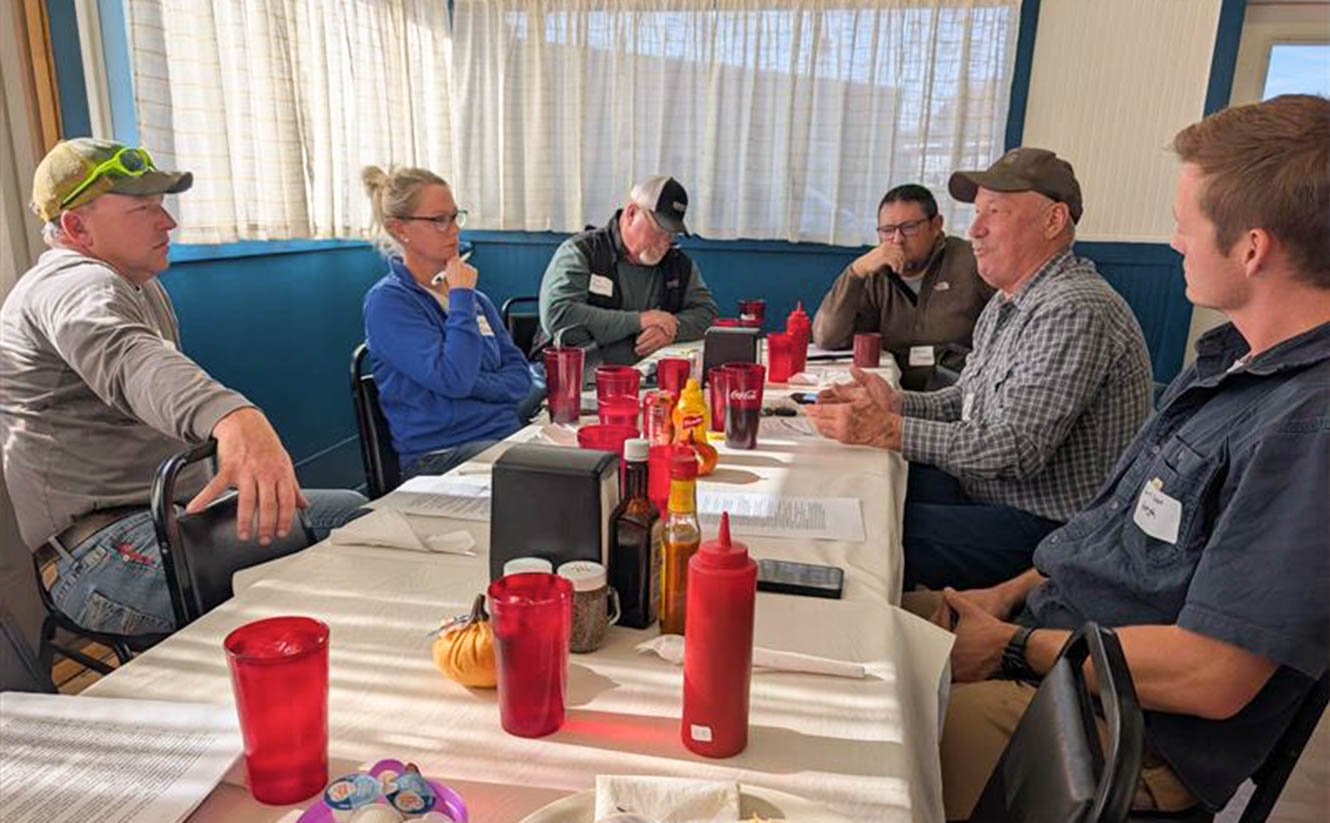
(Photo: Iowa Soybean Association / Katie Hall)
Farmers shape ISA policy priorities
November 20, 2025 | Kriss Nelson
Iowa Soybean Association (ISA) policy roundtables across Iowa this month were power-packed, featuring open dialogue and fellowship that comes from getting off the farm and talking through real challenges face-to-face.
Katie Hall, ISA’s senior director of advocacy, says the goal for this year’s policy roundtables was to hear from as many farmers as possible.
“Farmers’ voices are impactful. I want to talk with everybody. I want to hear what everybody thinks,” Hall says. “We all see things differently, and diversity is really important in terms of policy conversation.”
Joe Sperfslage, ISA district 6 director, came away from the roundtable impressed by how open the conversation felt and how committed ISA staff were to improving the policy process.
“The policy meeting was very transparent. All opinions were welcomed, listened to and respected,” he says.
Farmer priorities
Farmers raised concerns on a wide range of issues during the policy roundtables, including property rights, high input prices, the MAHA movement, property taxes, domestic demand and more.
For Sperfslage, unprofitable soybean prices, high seed costs and the need to expand domestic soybean use rose to the top of the discussion and says the roundtable offered an important opportunity to raise those concerns.
“Obviously, the bean markets are not favorable for most producers, probably below their break-even cost of production,” he says.
However, when it comes to policy priorities, he shared that market pressure is only one piece of the challenge.
“Farmers in the United States should not be paying more for seed than farmers in Brazil,” he says. “And, I would like to see policies that encourage agricultural production in the United States. And that means domestic production of inputs.”
During the roundtable, Sperfslage also stressed that building domestic demand for soy is essential because tariffs are not the sole problem currently impacting a farmer's bottom line.
“At the end of the day, it’s a Brazil problem. Tariffs certainly don’t help, but really tariffs were just the frosting on a cake that was already baked,” he says. “There is a supply problem in the world. There are a lot of beans, and we need to work on demand.”
Shaping policy
Farmers who become an ISA Advocate member help ensure their voices are heard at the Capitol. Hall says it’s their opportunity to help shape the advocacy team’s policy direction.
“As we’ve seen over the last couple of years, policy and advocacy have become more and more important. Engaging with the ISA Advocacy team, discussing issues and finding solutions, that’s where we can make a difference for farmers and our rural communities,” Hall says. “We recognize that we’re in a challenging time, but we are resilient; we can think differently about how to support and create markets. Folks see the value in being engaged in policy conversations, and discussions at these roundtables were really robust.”
Next steps
All input gathered from the nine district meetings is compiled into the policy document with recommendations for the ISA Resolutions Committee.
“The committee then reviews the proposals before they move to the December policy meeting, where all delegates will discuss the changes and vote on the resolutions,” says Hall.
Reach out
Hall welcomes feedback from members and encourages them to reach out.
“We’re here— that’s what we do. We represent our farmers,” Hall says. “There is no such thing as late feedback. I want to know what issues are top of mind so we can work to identify solutions. Chances are good that you’re not alone in having that challenge.”
More information on becoming an ISA Advocate member and contacting the ISA Advocacy team can be found here.
Written by Kriss Nelson.
Back